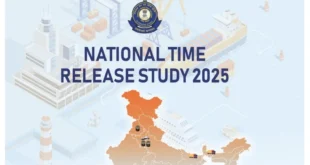Apex court seeks explanation from government on dissolution of Parliament
One of Sri Lanka’s independent Election Commissioners joined a host of political parties in challenging President Maithripala Sirisena’s recent dissolution of Parliament, in the country’s Supreme Court on Monday. The court asked the Attorney-General to explain the President’s decision at Tuesday’s hearing, after lawyers representing various parties denounced the sacking of Parliament as illegal and unconstitutional. The Attorney-General sought another day’s time to respond, but the Chief Justice refused. The parties were petitioning the apex court, seeking an interim order suspending Mr. Sirisena’s November 9 proclamation. In the wake of his political front lacking majority in Parliament, the President dissolved the House and called for general elections on January 5.
‘Poll body unhappy’
Election Commissioner Ratnajeevan Hoole filed action in Supreme Court against being ordered by gazette to conduct “an illegal election”. “All three commissioners are unhappy with the dissolution of Parliament,” he told The Hindu , but the other two are said to be of the view that they must comply with a presidential gazette.
On Monday, the commissioners, however, decided they will not object to any relief being sought by other petitioners. Appearing for Mr. Hoole, Attorney at Law Hejaaz Hizbullah argued in a packed court room, that a franchise was about people getting together and expressing an opinion on who should represent them in Parliament, and who should make laws. “Those privileging Article 33(2)(c) are saying that one person’s [the President’s] view is more powerful than that of the people and their franchise. There is only one word for it, it is dictatorship,” he said. The thrust of most arguments made by over 10 lawyers on Monday, was that a general provision — Article 33 (2) (c) of Sri Lanka’s Constitution — which enumerates some powers of the President — cannot override a specific provision in Article 70 (1) that expressly limits those powers. “You can’t cherry-pick the provisions, the Constitution has to be read in whole,” Mr. Hizbullah said. All parties, except those in the Sirisena-Rajapaksa front, have sought a stay order on the dissolution of Parliament and conduct of polls, citing “serious consequences” of holding polls in the face of what they term an illegal action. Sri Lanka plunged into a political crisis on October 26, after Mr. Sirisena controversially appointed former President Mahinda Rajapaksa as Prime Minister, sacking Ranil Wickremesinghe from the office. In the fortnight since, foreign governments have not publicly commented on the administration. The Foreign Ministry confirmed to the weekend newspaper Sunday Times that no head of government or state have so far sent congratulatory messages to the “new PM” Mr. Rajapaksa.
Mark of protest
On many countries’ pending acknowledgement of the “caretaker government”, Sarath Amunugama, newly-appointed Foreign Minister, told mediapersons on Monday that “congratulatory messages should not be equated with recognition… we aren’t losing sleep over this matter.” Observing that all recent actions of the President were constitutional, he said: “Of course certain countries have said they are watching the situation… but there are no hostile forces.” Meanwhile, Reuters reported on Monday that eight Western countries stayed away from a meeting with Sri Lanka’s newly-installed government on Monday, “to register their protest against Mr. Sirisena’s decision to dissolve Parliament”.
 Chinmaya IAS Academy – Current Affairs Chinmaya IAS Academy – Current Affairs
Chinmaya IAS Academy – Current Affairs Chinmaya IAS Academy – Current Affairs


